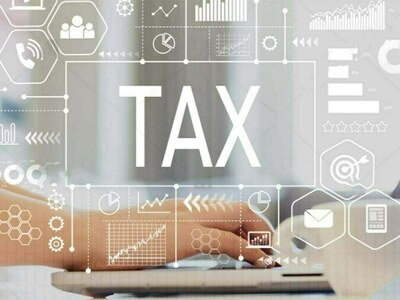Telecom Sector Proposes Sales Tax Reduction in Budget 2025-26
The telecom industry has suggested that the government lower the sales tax on telecom services from the existing 19.5 percent—which is the highest compared to other sectors—to 16 percent in the upcoming fiscal year 2025-26. They also advocate for nationwide harmonization, ensuring that all provinces and the federal capital share a uniform rate.
In their budget proposals submitted to the government, the IT and Telecom sector additionally suggested the reinstatement of advance tax to bolster consumer purchasing power, given that the majority of customers fall below the taxable income threshold.
The sector has proposed eliminating the 10% advance income tax under Section 236A of the Income Tax Ordinance (ITO) 2001 on new or renewed telecom licenses. They argue that this advance tax inflates operational costs and the cost of capital, thereby impeding 4G/5G expansion and rural connectivity.
The proposals highlight that Cellular Mobile Operators face withholding income tax deductions/collections on numerous transactions, such as electricity bills for cell sites, which number in the thousands. This increases compliance costs and adds administrative burden. Verification of these tax collection claims on bills is also impractical for tax authorities, potentially reducing their operational burden. Furthermore, the withholding tax on telecom services is treated as a minimum tax, which contradicts taxation principles by being payable even during loss-making years. Current recovery measures are also considered overly stringent, disrupting business and undermining taxpayer confidence. The sector has proposed an exemption from withholding taxes by adding a clause to the 2nd Schedule of ITO 2001. If this is accepted, other proposals become redundant.
They also suggested that the 4% withholding tax on telecom services under Section 153 should be adjustable rather than a minimum tax. The change from adjustable income tax to minimum tax has effectively turned a direct tax into an indirect one. The tax amount is no longer based on actual income but is a fixed charge applied uniformly, regardless of a company’s profitability.
The sector has proposed extending the carry forward period for minimum tax credit under Section 113 from 3 years to 5 years, reverting to the pre-Finance Act 2024 position. They argue that the telecom sector’s payback period is lengthy, with returns on investment taking 8 to 10 years. Limiting the credit to 3 years is unsustainable for loss-making companies. The proposal also seeks to remove regulatory duties on telecom power equipment not manufactured locally. Additionally, the telecom services sector should be excluded from retail price lists since they do not import goods for direct sale.
Aamir Ibrahim, CEO of Jazz and Chairman of the Telecom Operators Association, stated that over-taxation of telecom services not only affects consumer affordability but also diminishes investor confidence in a sector requiring constant innovation and infrastructure upgrades.
“Overburdening the telecom sector with excessive taxation is economically counterproductive and socially regressive. We must recognize telecom as the digital backbone of every other sector and treat it accordingly in our fiscal policies,” Ibrahim said.
Regarding the role of telecom in the country’s digital future, he emphasized that connectivity is now as crucial as roads and power grids.
“Telecom is the infrastructure powering e-commerce, mobile banking, online learning, telehealth, and public service delivery. However, we continue to treat it as a revenue stream rather than a strategic enabler. To build a future-ready Pakistan, we need to view telecom as a development multiplier, not a luxury,” he added.
He further noted that Pakistan’s tax burden is disproportionately borne by a small group of compliant individuals and industries. To foster a sustainable digital economy, it is necessary to broaden the tax net—incorporating more participants into the formal economy—rather than repeatedly taxing existing contributors. Applying additional pressure on the formal sectors, especially a foundational one like telecom, discourages investment, slows innovation, and hampers long-term growth.
Ibrahim argued that every tax on telecom is essentially a tax on opportunity. Whether it’s a student in rural Balochistan attending a virtual class or a woman entrepreneur using mobile payments to expand her business, digital access is vital. A more progressive fiscal policy would lower barriers to connectivity, making digital inclusion a reality for all Pakistanis.
“Telecom is not a luxury but a critical utility, like electricity or clean water. It enables students to learn, entrepreneurs to sell, farmers to access market information, and patients to receive remote healthcare. Overburdening this sector with excessive taxation is economically counterproductive and socially regressive. We must recognize telecom as the digital backbone of every other sector and treat it as such in our fiscal policies,” Ibrahim concluded.
Ibrahim also mentioned that excessive taxation on telecom not only affects affordability for consumers but also weakens investor confidence in a sector that requires continuous innovation and infrastructure upgrades. He suggested that a rationalized tax regime, combined with efforts to document the informal economy, would generate more sustainable revenues for the state without impeding the growth of the digital ecosystem.



Comments (0)
No comments yet. Be the first to comment!
Leave a Comment